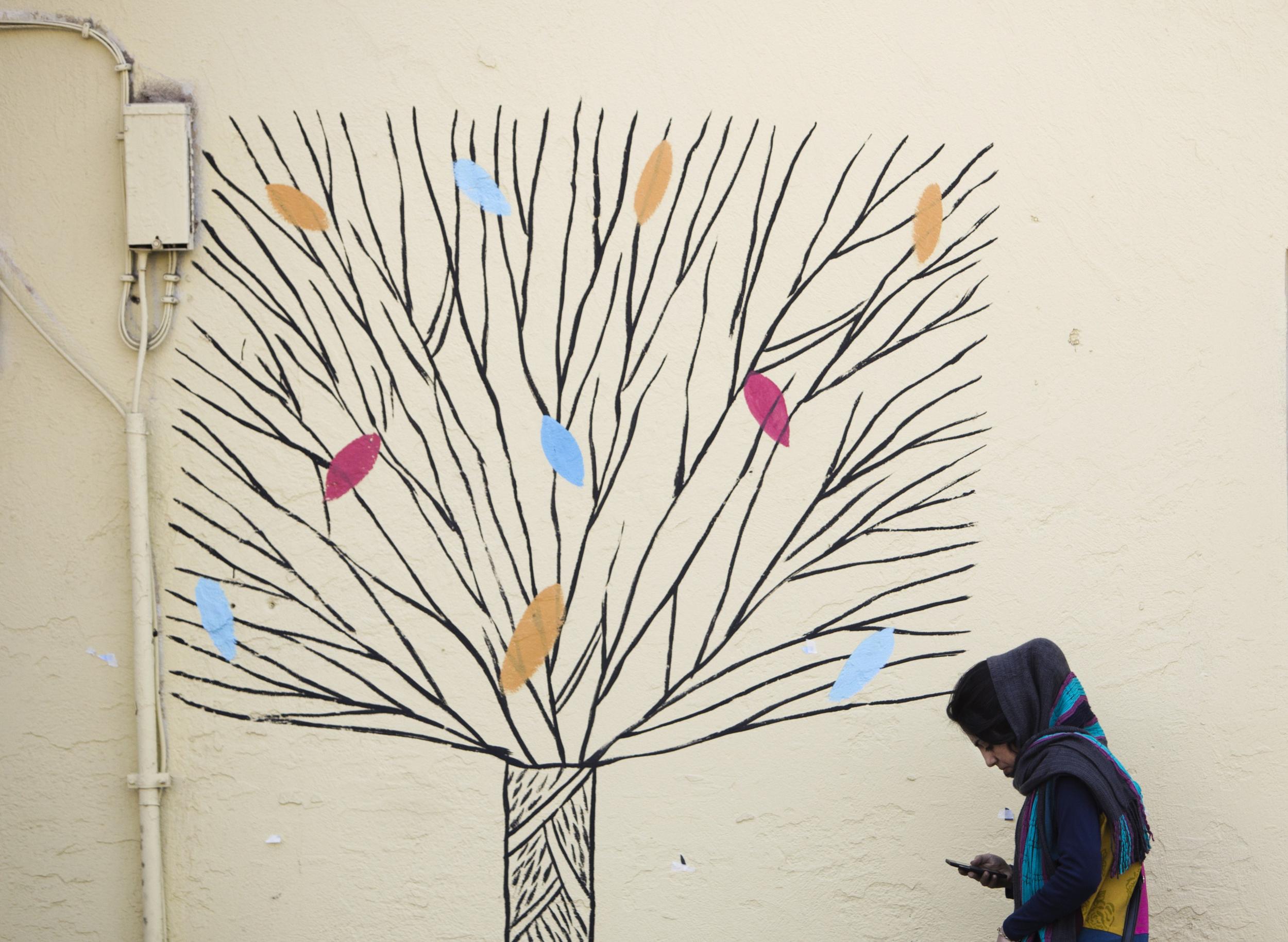Western social media firms under fire as Iranians hint at dialogue over censorship
Exclusive: Twitter, Instagram and YouTube urged to address 'lack of transparency' over relationship with the Islamic Republic

Your support helps us to tell the story
From reproductive rights to climate change to Big Tech, The Independent is on the ground when the story is developing. Whether it's investigating the financials of Elon Musk's pro-Trump PAC or producing our latest documentary, 'The A Word', which shines a light on the American women fighting for reproductive rights, we know how important it is to parse out the facts from the messaging.
At such a critical moment in US history, we need reporters on the ground. Your donation allows us to keep sending journalists to speak to both sides of the story.
The Independent is trusted by Americans across the entire political spectrum. And unlike many other quality news outlets, we choose not to lock Americans out of our reporting and analysis with paywalls. We believe quality journalism should be available to everyone, paid for by those who can afford it.
Your support makes all the difference.Several social media companies in the West have been criticised for a perceived lack of transparency in alleged talks with the Iranian government on censoring content to the approval of the country’s strict religious authorities.
Instagram, currently available in Iran – as well as Twitter and YouTube, which are blocked but widely visited by Iranians using proxy servers – have all been reported by local media in recent weeks as as co-operating with Tehran to block or censor “immoral” content.
Newly installed communications minister Mohammad-Javad Azari Jahromi has been clear that he intends to shake up the status quo, promising citizens easier access to the internet and app platforms.
He has been quoted in several Iranian newspapers as claiming that the government is in fresh talks with social media companies to allow them to operate more freely within Iran as long as they adhere to the country’s strict “morality” rules.
“[Twitter] has announced that it is prepared to negotiate to resolve problems," he told a daily newspaper last week, adding that officials had also reached out to YouTube representatives.
In news reports earlier this month, outgoing communications minister Mahmoud Vaezi said that the Supreme Council of Cyberspace (SCC) had also begun talks with managers at photo-based service Instagram to block “immodest” pages from being viewed within the country.
“We have contacted the managers of Instagram and they have responded that they are ready to from a moral perspective to filter pages that have criminal content,” Mr Vaezi was quoted as saying.
Representatives for Twitter, YouTube and Instagram did not immediately respond to requests for comment from The Independent.
Mr Azari Jahromi is, at 36, Iran’s youngest ever minister, and the first to be born after the 1979 Islamic revolution. His appointment in newly re-elected moderate President Hassan Rouhani’s cabinet has been criticised by human rights groups, however, who do not trust his intentions. They say he was involved in surveillance efforts during the mass anti-regime protests of 2009 – a claim the minister denies.
Since violent and pornographic material is removed under the various platforms’ terms of service anyway, freedom of expression watchdogs are worried that the newly proposed definition of “immoral” content could be stretched to include other messages, pictures and video that would be of interest to the Iranian government – those which betray anti-regime sentiment or a user’s sexuality, for example.
The internet, after all, is viewed by Iran’s Committee for the Promoting Virtue and Prohibiting Vice as a heavily corrupting influence.
“Bad hijab is a bad thing but cyberspace is a hundred times worse,” Friday prayer leader Ayatollah Mohammad-Ali Movahedi Kermani, who heads the Committee, said in a speech last December.
“Cyberspace can uproot religion and Islam completely,” he added.
The SCC, which reports directly to Supreme Leader Ayatollah Ali Khamenei, is supposed to shield Iranians from the internet’s blasphemous or sinful content.
But it also stifles freedom of speech and expression, and communications monitoring can land Iranian activists, or anyone else who breaks the country’s conservative social rules, in serious trouble.
There is a precedent to the new furore over access to potentially censored versions of Instagram, Twitter and YouTube in how encrypted messaging app Telegram’s relationship with the Iranian government has changed over the last two years, Kaveh Azarhoosh, an internet policy analyst and masters candidate at Oxford University’s Internet Institute said.
“Our hunch the whole time was that the Iranian government claimed they were talking to high-level people at Telegram, but they weren’t really, and it was all just propaganda,” he said.
However, contradictory statements from the Iranian authorities and the software company in 2015 appeared to show that there was some degree of collusion between the app's developers and the Tehran, sparking fears over interception and censorship for journalists, artists and activists among its 40 million Iranian users.
“In the end, Telegram ended up moving part of their physical server actually into Iran,” Mr Azarhoosh said.
“Telegram insists that the service is still fully encrypted, and they did it to to increase speeds, which may be the case but it shows there has been at least some level of interaction between Telegram and the government.
“What’s dangerous is if these companies are not transparent about their dealings with Iran. The Iranian government is one of the biggest abusers of limiting information in the world. These proposed measures would invade people’s privacy and right to expression and could be a matter of life and death for bloggers and other activists.”
Join our commenting forum
Join thought-provoking conversations, follow other Independent readers and see their replies
Comments